Data is one of the most valuable assets of the 21st century, which is why attackers are constantly targeting it - whether on smartphones, in the Internet of Things, in the cloud or on the shop floors of smart factories. Researchers at TU Graz are developing solutions with which companies and users can protect themselves against threats, designing intelligent system configurations, developing encryption technologies or searching for security gaps in processors in order to patch them themselves immediately.
The dossier "Interconnected! But secure?" brings together interviews with experts on the game of cat and mouse in cybersecurity, explanations of new research findings and hands-on advice for greater data security.
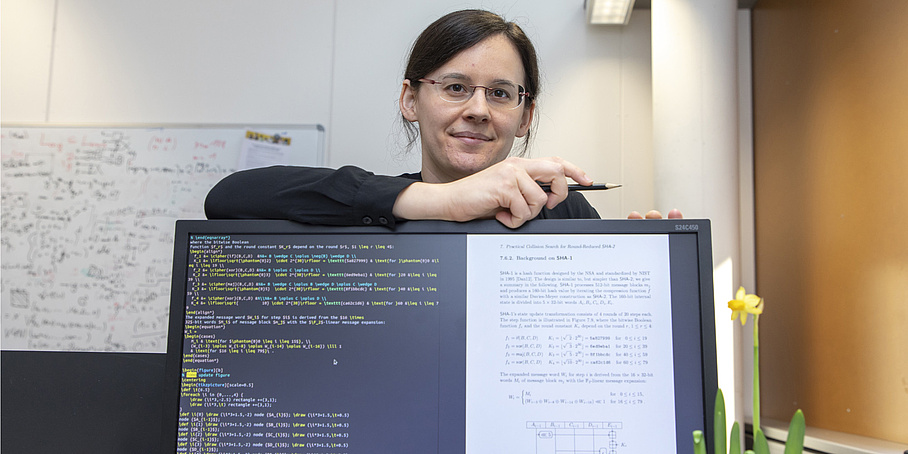
“Cryptography has a certain fun factor”
She co-developed the international standard for lightweight cryptography and finds tinkering with cybersecurity challenges entertaining. An interview with Maria Eichlseder about her research.
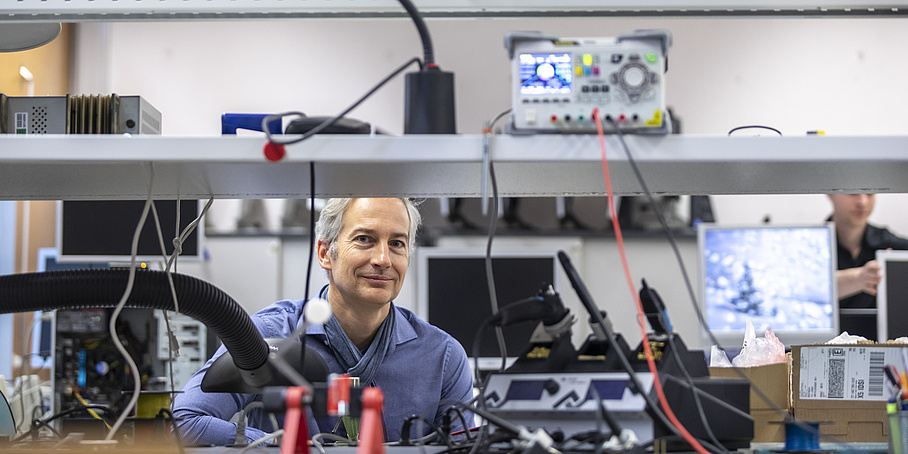
Particular Challenges in the Internet of Things
The Internet of Things is growing and so is the issue of security. Kay Römer from the Institute of Technical Informatics at TU Graz on the special requirements and the need for public awareness.
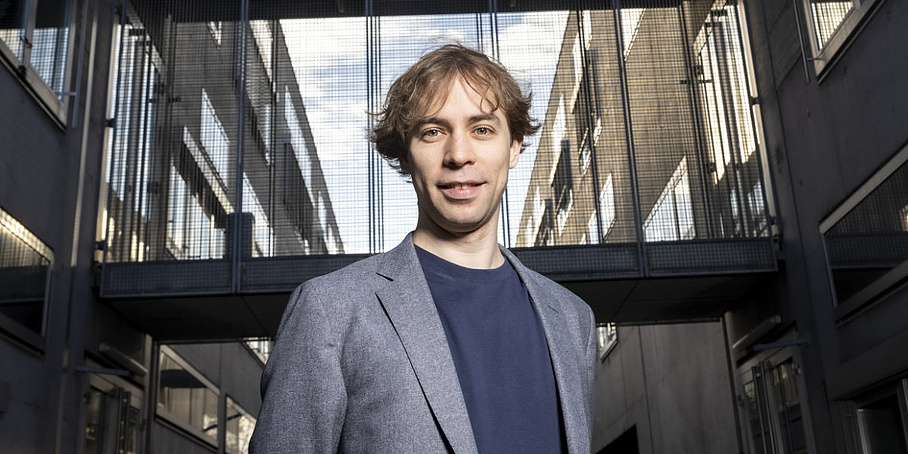
“It is secure when everything works the way I expect it to.”
Daniel Gruss is a security researcher at TU Graz and has been instrumental in discovering (and getting rid of) numerous computer security vulnerabilities in recent years.
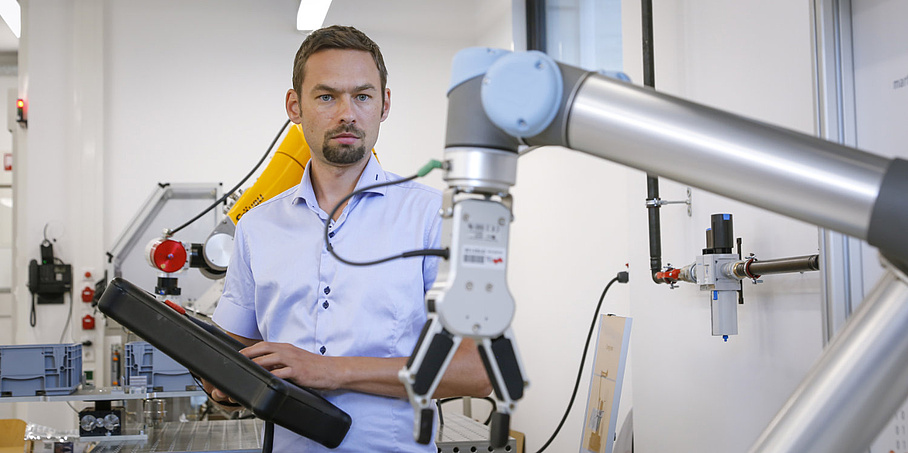
“Security is a process.”
At smartfactory@tugraz, robots and intelligent machines are connected to form a cyber-physical system. Stefan Trabesinger investigates how such a network can be protected against attacks from the internet without losing its functionality.
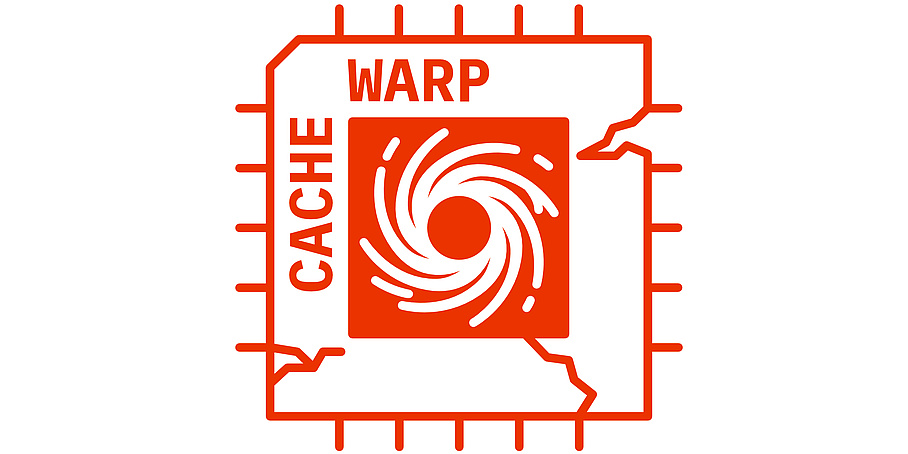
New CPU Vulnerability Makes Virtual Machine Environments Vulnerable
Researchers at TU Graz and the Helmholtz Centre for Information Security have identified a security vulnerability that could allow data on virtual machines with AMD processors to fall under the control of attackers.

Analysis of energy consumption allows data theft
Researchers at TU Graz and the Helmholtz Center for Information Security have discovered a novel security gap in all common CPUs that can hardly be mitigated.

Algorithm from TU Graz Becomes International Cryptography Standard
The US National Institute of Standards and Technology (NIST) has named the "Ascon" algorithm developed at TU Graz as the international standard for lightweight cryptography.
How side-channel attacks work
Cybersecurity experts at TU Graz are presenting an online course on attack methods in which physical effects allow conclusions to be drawn about protected data as a sitcom.
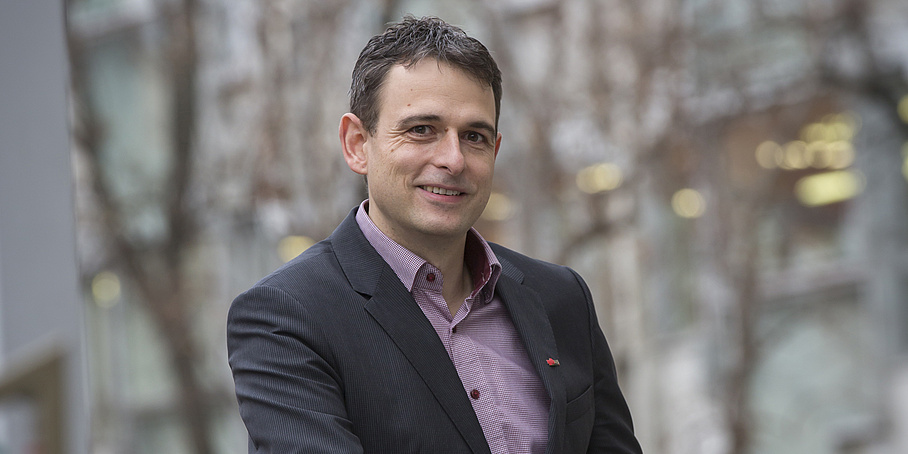
From the Archive: ”This isn’t the time to rest on our laurels.”
The topic of security is just starting to become truly significant, says researcher Stefan Mangard. He is working on the ERC project Sophia, where he is concentrating on secure computer processors.
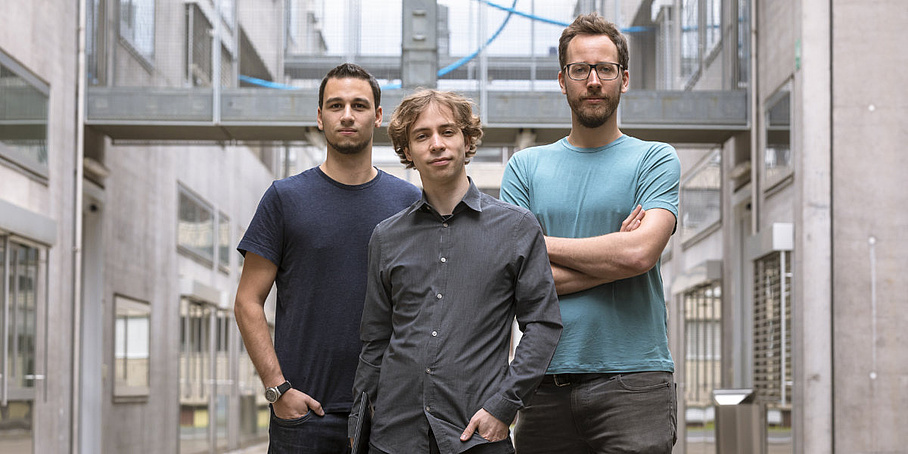
From the Archive: Following on from Meltdown and Spectre - TU Graz researchers discover new security flaws
ZombieLoad and Store-to-Leak Forwarding impact on the security of Intel computer processors. The patches developed last year are ineffective, so new updates and security solutions will be necessary.
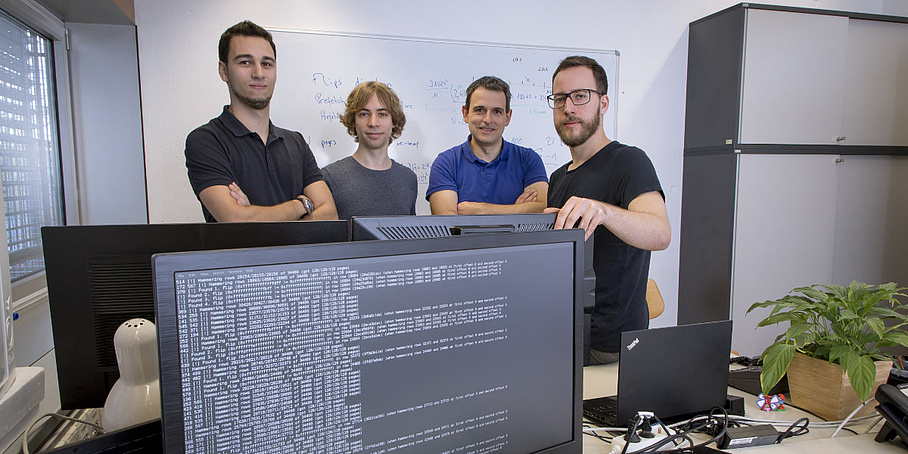
From the Archive: TU Graz researchers discover serious security vulnerabilities
An 10-strong international team of researchers – including researcher from TU Graz – has revealed two new vulnerabilities in computer processors: Meltdown and Spectre. PCs, server and cloud services are affected. A patch could help.
